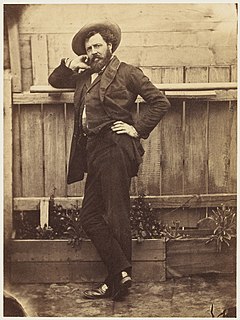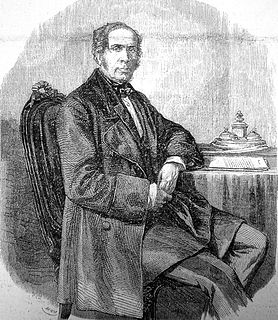 W
WAntoine Julien Nicolas Fauchery was a French adventurer, writer and photographer with republican sympathies. He participated in the national uprising in Poland in 1848, opened a photographic studio in Melbourne, Australia, in 1858, and was commissioned to accompany the French forces as they progressed to Beijing during the last stage of the Second Opium War in 1860. He wrote thirteen long dispatches from the front-line for le Moniteur, the official French government newspaper. He died in Yokohama of dysentery.
 W
WYixin, better known in English as Prince Kung or Gong, was an imperial prince of the Aisin Gioro clan and an important statesman of the Manchu-led Qing dynasty in China. He was a regent of the empire from 1861 to 1865 and wielded great influence at other times as well.
 W
WJean-Baptiste-Louis Gros (1793–1870), also known as Baron Gros, was a French diplomat and later senator, as well as a notable pioneer of photography.
 W
WCount Nikolay Pavlovich Ignatyev, a Russian statesman and diplomat, became best known for his aggressive expansionism in support of Russian imperialism. In dealing with China, he secured a large slice of Chinese territory by the multi-lateral Treaty of Peking in 1860. As the Russian ambassador to the Ottoman Empire from 1864 to 1877, he worked to stir up pan-Slavic feeling and nationalism against the Ottomans, and had some responsibility for the Bulgarian rebellion of April 1876. He encouraged his government to declare war on Turkey in 1877, and after the decisive Russian victory he negotiated the Treaty of San Stefano in 1878. It heralded greatly strengthened Russian influence in the Balkans. However Britain and Austria intervened and forced the retraction of the treaty. As Minister of the Interior, Count Ignatyev promoted ultraconservative and Slavic-nationalist policies.
 W
WSengge Rinchen or Senggelinqin was a Mongol nobleman and general who served under the Qing dynasty during the reigns of the Daoguang, Xianfeng and Tongzhi emperors. He is best known for his role at the Battle of Baliqiao during the Second Opium War and his contributions in helping the Qing Empire suppress the Taiping and Nian rebellions.
 W
WCommodore Josiah Tattnall was an officer in the United States Navy during the War of 1812, the Second Barbary War and the Mexican–American War. He later served in the Confederate Navy during the American Civil War.
 W
WJohn Elliott Ward was an American politician and diplomat. He served as United States Attorney for Georgia, mayor of Savannah, Georgia, speaker of the Georgia House of Representatives, president of the Georgia State Senate, president of the 1856 Democratic National Convention, and United States Minister to China under James Buchanan. He resigned from his diplomatic post shortly after the outbreak of the American Civil War, returned to Savannah, and after the war, moved to New York City, where he practiced law for several years.
 W
WYe Mingchen was a high-ranking Chinese official during the Qing dynasty, known for his resistance to British influence in Canton (Guangzhou) in the aftermath of the First Opium War and his role in the beginning of the Second Opium War.